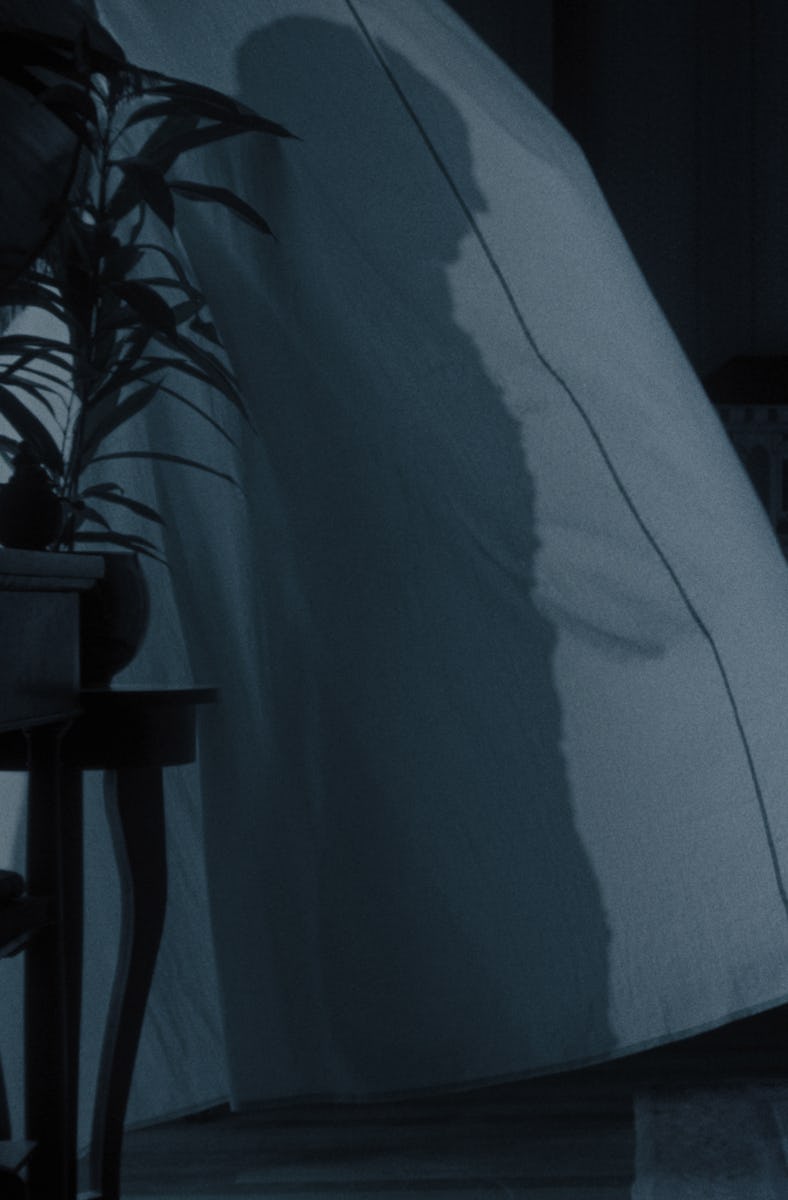For Robert Eggers, It Was Always Nosferatu
The director reveals why his remake of F.W. Murnau’s vampire classic was his longtime passion project.

Nosferatu has been on Robert Eggers’ mind as long as he’s had a career. Actually, even before that — when he was a teen, the director of acclaimed films like The Witch and The Lighthouse had directed his high school’s staging of F.W. Murnau’s 1922 vampire classic. But the obsession started even earlier: when he was nine years old, he spotted a picture of Max Schreck in a book on vampires, which kickstarted a lifelong obsession that would turn Nosferatu into a decade-long passion project.
Back in 2014, Eggers was considering remaking Nosferatu, but balked at the idea of his sophomore effort being a new take on one of the greatest horror films of all time. "It feels ugly and blasphemous and egomaniacal and disgusting for a filmmaker in my place to do Nosferatu next,” Eggers told IndieWire back in 2016.
Robert Eggers on the set of Nosferatu.
So it would take 10 years and two more movies for Eggers to return to Nosferatu. The result was more than worth the wait — Nosferatu is a delightfully depraved update, synthesizing elements of Murnau’s original with Bram Stoker’s Dracula (which Murnau couldn’t directly adapt due to copyright issues). In fact, Eggers’ film seems to understand Dracula, specifically its underlying theme of the seductive foreigner, more than many past adaptations of the film. So what was it about Nosferatu that held Eggers’ imagination for so long, that Dracula didn’t have?
“One of the great things about what Murnau and his collaborators did when they adapted Dracula is that they turned Dracula into a simple fairy tale,” Eggers tells Inverse. “And weirdly, it's that simple fairy tale version of Dracula that has kind of influenced cinema throughout the years, almost more than the novel has, believe it or not.”
Dafoe tips the film over into unhinged.
The influence of the original Nosferatu is certainly felt. The iconic image of his shadow creeping up the stairs is indelible, while rumors of star Max Schreck being an actual vampire were so pervasive that it inspired a feature film, 2000’s Shadow of the Vampire, starring none other than Eggers’ frequent collaborator, Willem Dafoe. Dafoe joining Eggers’ Nosferatu lent the film an added level of buzz that might’ve pushed Eggers through his anxieties about making his passion project, though Dafoe only had praise for Eggers’ new vision.
“I was excited by Robert's specific new take,” Dafoe tells Inverse. “I think it's also fun for our audience that have seen that movie to see that I'm playing a different role in this.”
In Nosferatu, Dafoe plays Professor Albin Eberhart Von Franz, the film’s Van Helsing equivalent, and a character that didn’t exist in Murnau’s original film. Dafoe’s unhinged performance injects an urgency to the film, and a degree of unpredictability for those familiar with both Nosferatu and Dracula. But Eggers’ most inspired innovation is the twisted romance between Count Orlok (Bill Skarsgård) and Ellen Hutter (Lily-Rose Depp), which is framed almost as a supernatural affair. It’s a sick romance that brings to mind Andrzej Żuławski’s cult horror film Possession, a comparison that Eggers welcomes.
“Zulawski's work is very inspiring to me, [Possession] along with The Devil and Third Part of the Night particularly,” Eggers says. “And when I first met Lily-Rose Depp, she had read the script, and she brought up a lot of Dracula films, both mainstream and obscure, and immediately saw the connection with Possession. And then I knew she was probably the one.”
Eggers directing Depp and Aaron Taylor-Johnson on the set of Nosferatu.
Depp is a revelation in Nosferatu, haunted and skeletal for much of the film as she’s plagued by visions of Count Orlok probing her mind. But in an expansion of the role that Ellen has in Murnau’s original, in which she decides to sacrifice herself to end Orlok’s reign of terror, Depp takes an even more active role — she becomes the seducer.
“[What] Murnau does that is really great is that in the final act, it becomes the female protagonist that is the heroine,” Eggers says. “And I thought it would be more compelling and perhaps make the film more psychologically and emotionally complex if we tell the whole story through the female protagonist's eyes, if it's all told through Lily-Rose Depp's character's eyes.”
He concludes, “As much as it is truly a scary horror movie with jump scares and a lot of dread, it's also a gothic romance, a story of obsession and love.”